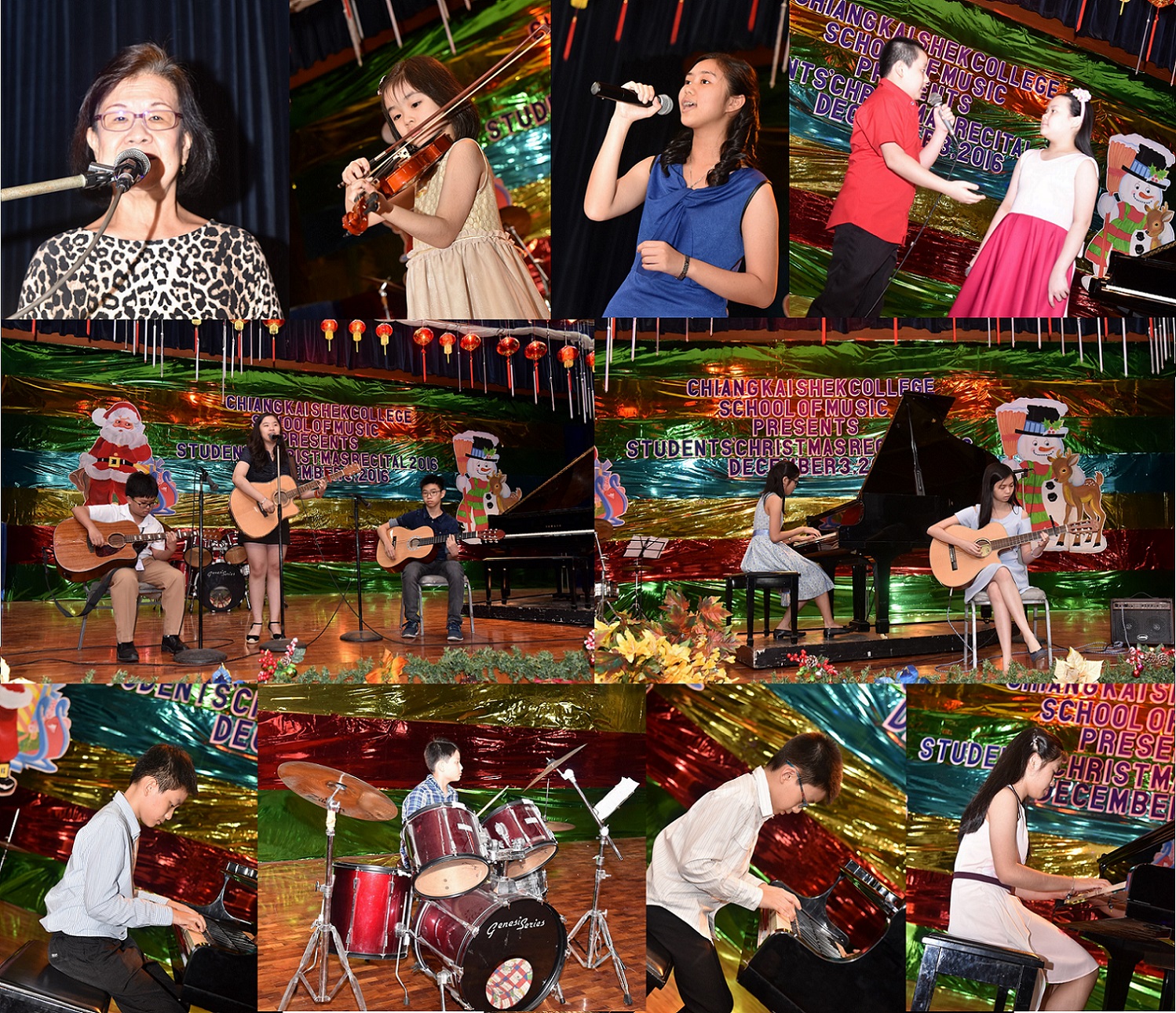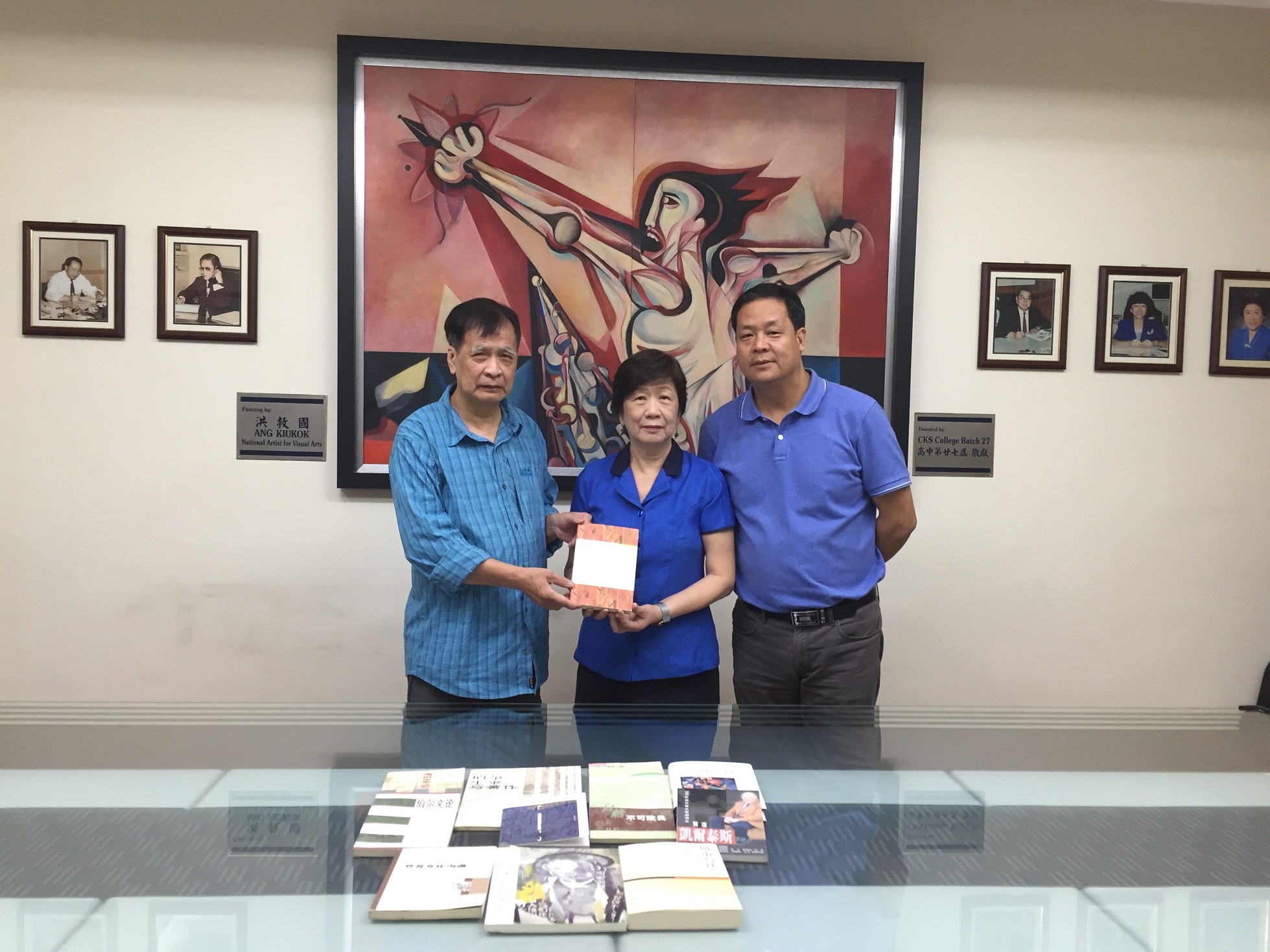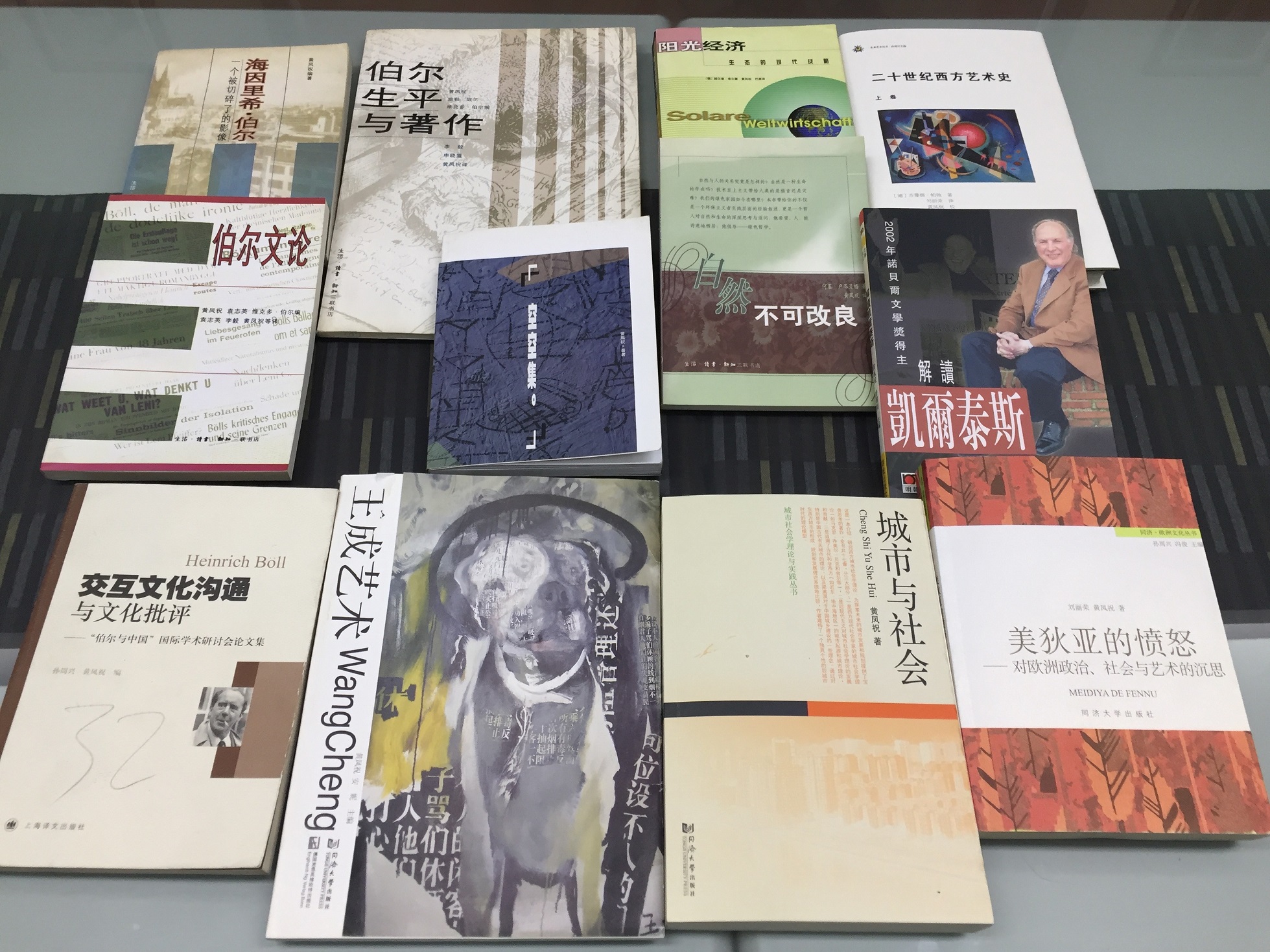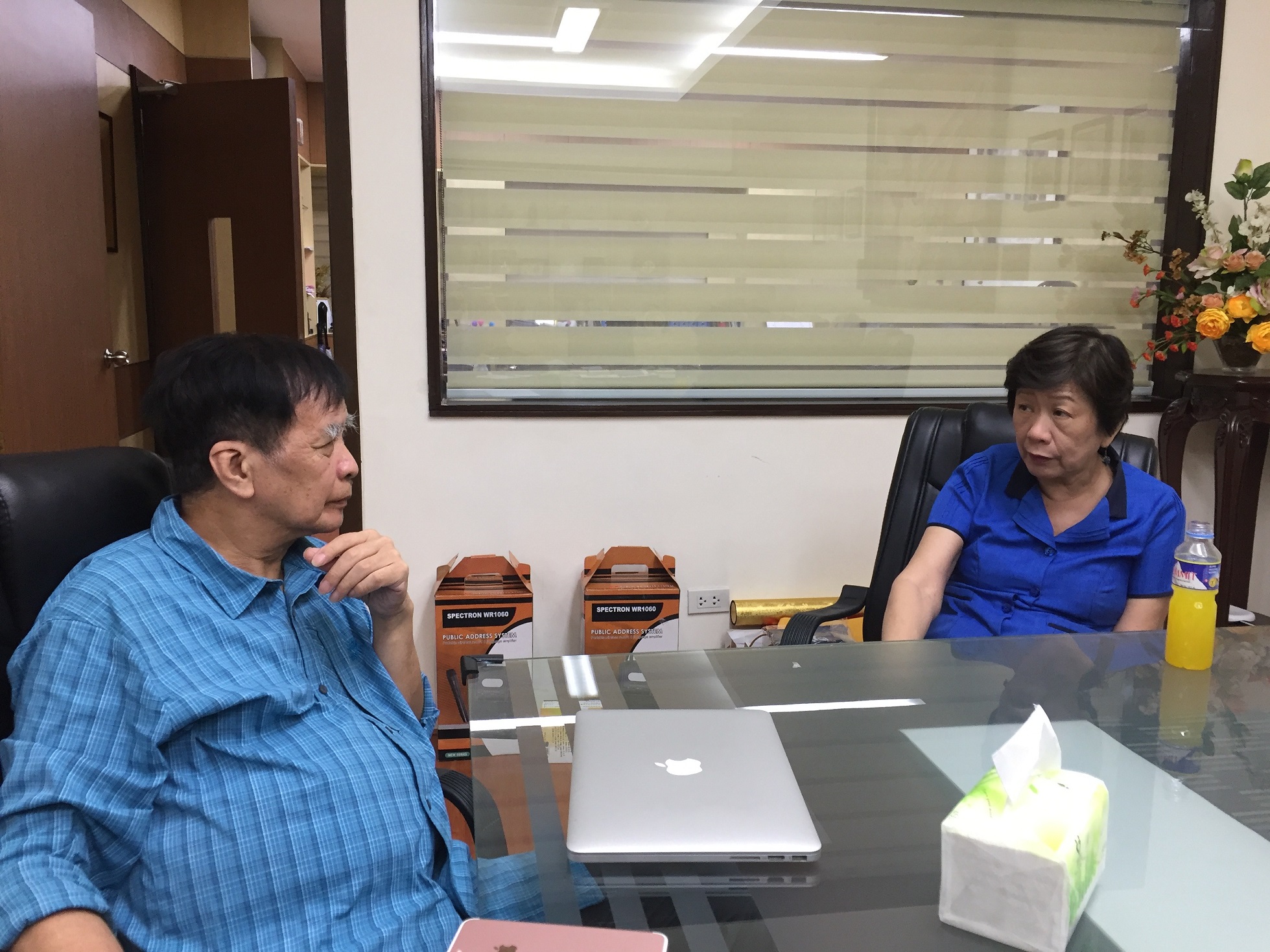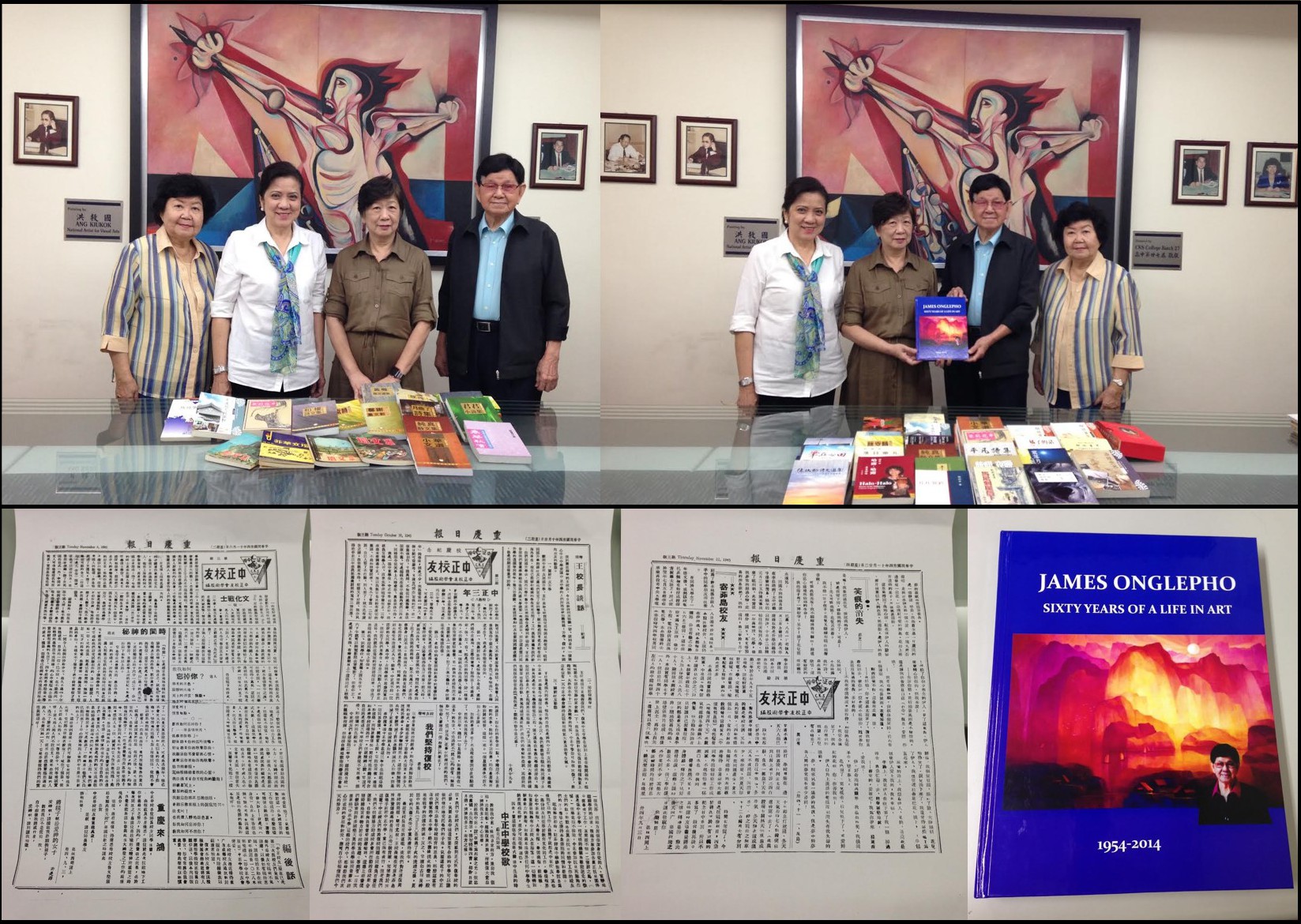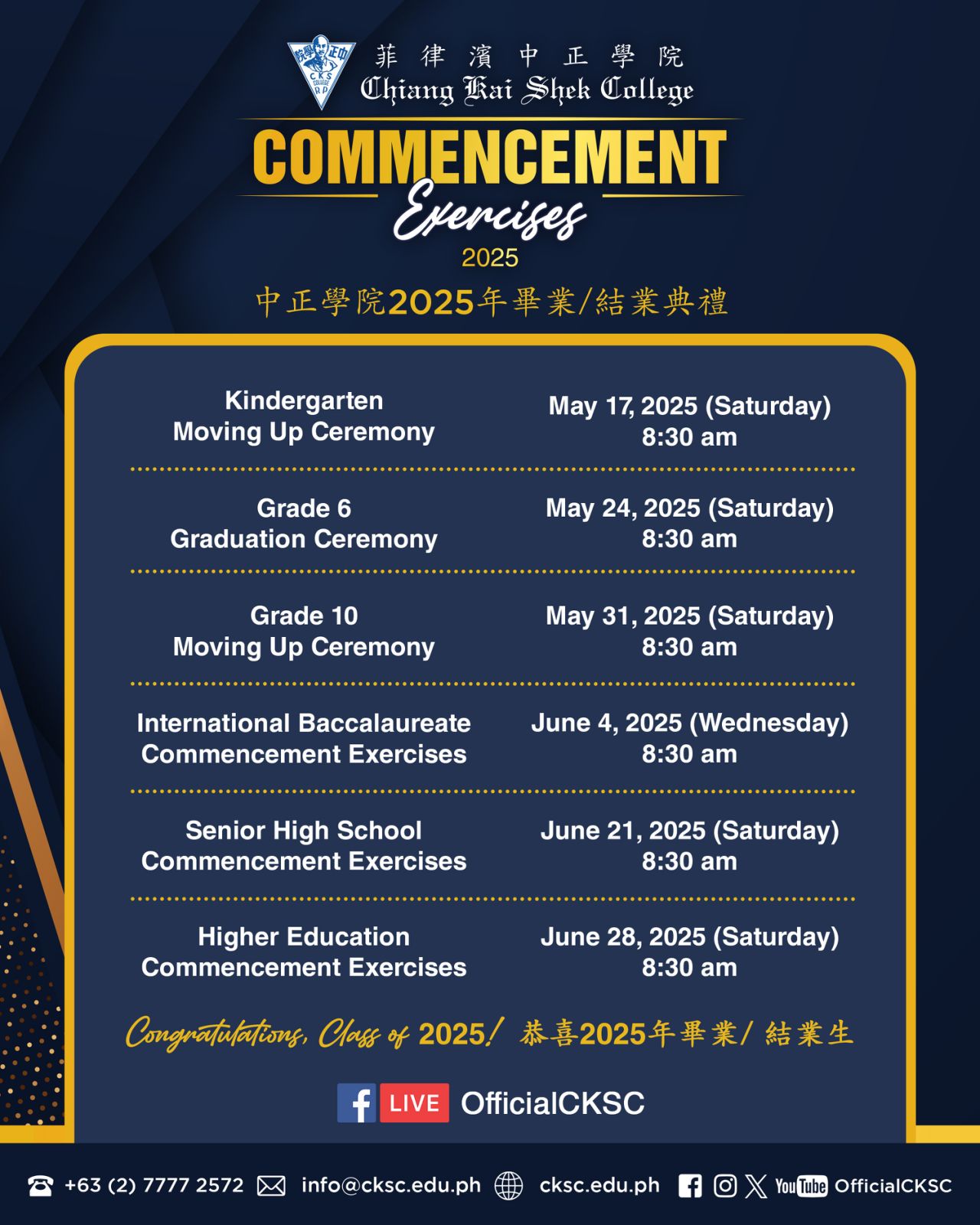-
Created on December 14, 2016 11:00 AM
-
Last Updated on January 24, 2017 11:02 AM
-
December 14, 2016 11:00 AM
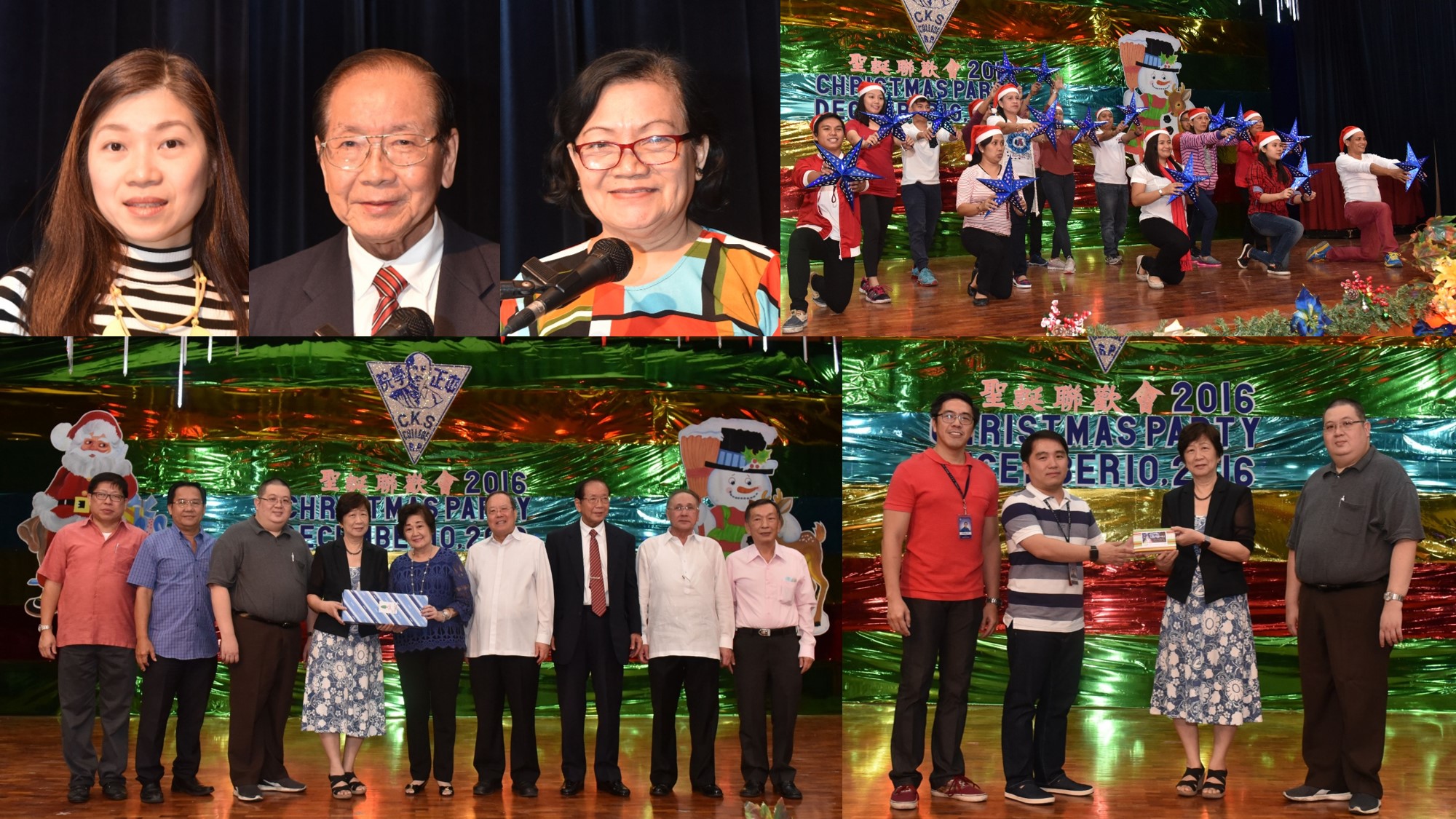
時值歲末,又來到普天同慶的聖誕佳節。二零一六年十二月十日(星期六)上午十時,本院於中正紀念堂舉辦了一年一度的聖誕聯歡會。
聖誕聯歡會會場張燈結綵,牆壁與天花板懸掛紅色水晶燈籠與五彩燈泡裝飾點綴,現場氣氛喜氣洋洋,熱鬧非凡。在歡欣喜樂的氛圍之下,本院全體現任與退休教職員一同出席聯歡會,盼望自己能幸運抽得大獎。
聯歡會在司儀施燕妮主任以中英文雙語主持下,拉開序幕。首先由尤扶西副董事長致詞。
尤副董事長向在座教師致上節日的問候後,表示本院歷經七十七個寒暑,校務蓬勃發展,這數十年來作育英才無數。本院學生在各領域之優異表現與輝煌紀錄,皆為本院帶來莫大榮耀,在教學前線努力付出的教師們可說是功不可沒。為感念答謝教師們付出的辛勞,董事會年年準備一份愛的禮物與大家共享。為使教師們更能有效教學,尤副董事長提到董事會總是配合學校添增教學設備,並適度調整薪酬。而為了因應時代需求,校方也開始擴建校地,於二零一一年舉行動土儀式,相信在不久後即可開始興建新校區。最後,尤副董事長勉勵教師們明天會更好,並祝福大家。
隨後,董事會頒發年終獎勵金,由潘露莉校長和曾煥賢副校長代表接受。
今年,全校教職員的年終獎金由下列熱心董事捐獻:董事長張秀金捐贈菲幣卅六萬元、名譽董事長陳著遠、邵建寅、章肇寧、副董事長林瑩鏡、尤扶西、陳義維各廿四萬元、黃俊人、郭樹垣、許威順、李賢冊、許峻榮、趙清俊、施恭旗、曾國榮、許能公、曾國翔等董事各十二萬元。
接著由Ms. Zenaida Borja作Sariling Sikap自助方案的收支報告,由潘露莉校長及曾煥賢副校長將今年的利潤,交予總主任蔡崢榮、葉啟明及Eugenia Martin,分發給全體教職員。
齊唱校歌後,開始享用豐盛得午餐。餐敘進行中,由體育部教師表演充滿活力的動感舞蹈,
之後,進入第二部分的抽獎。有禮金,有禮品。捐獻禮金董事除上列十七位董事外,張秀金董事長再捐獻菲幣兩萬元、陳著遠名譽董事長和章肇寧名譽董事長各5萬元,曾國翔一萬元。校友總會郭冰瑩會長、副會長吳玉英、施志雄、陳建衛、李錦思各一萬元,財政施人安五千元。此外,施恭旗董事捐贈Oishi休閒食品608袋。捐贈的商家,有Rex Bookstore三萬元、Phoenix Publishing House, Inc. 一萬五千元、Library Publishing六千元、Sibs Publishing House五千元、Diwa Publishing 三千元、Brilliant Creations Publishing –SM禮券兩千元及一千元各一張、ABIVA Publishing House兩支立扇、 Kynar Panel Phils. Corp.兩個旅行箱、Vibal Publishing House兩台Lenovo Yoga 平板電腦Tablet 8及一台HP 8 G2、JO-ES Publishing House兩支Standard立扇、1支Standard枱扇、TQM一支Dowell 立扇、一個YooBao Power Bank、Tech Factors Inc.3籃食品及3台Eureka 電飯鍋及一支MitsuTech 枱扇、1支MitsuTech 立扇、The Brain Computer Corp. 一套玻璃碗。
即使不是人人皆抽得獎項,會場仍充滿歡笑聲與向幸運得主道喜的喝采聲。在高潮迭起的抽獎活動之後,今年的聖誕聯歡會就在熱鬧歡騰的氣氛當中劃下完美句點。
(文。丁威中)
-
Created on December 5, 2016 5:19 PM
-
Last Updated on December 5, 2016 5:25 PM
-
December 5, 2016 5:19 PM
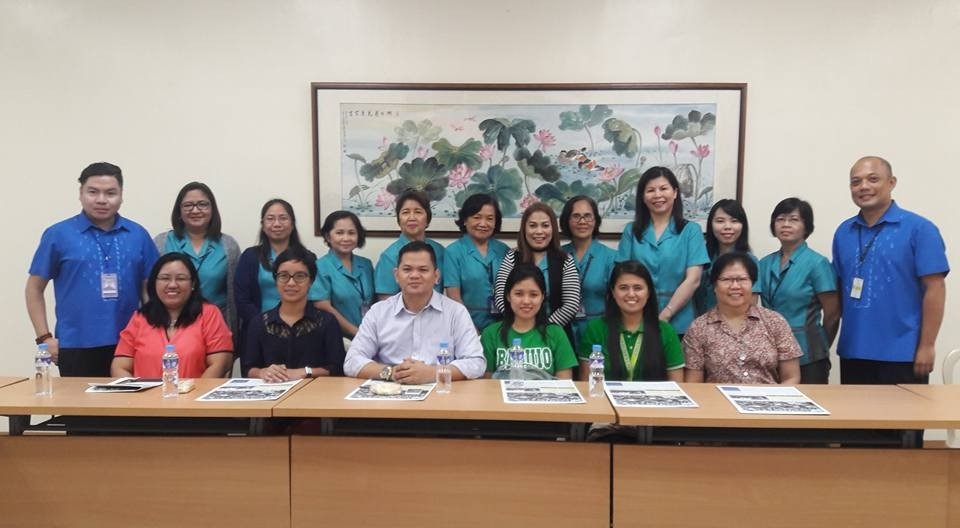
Last November, 28, 2016, a group of six (6) PhD students under the instruction of Sr. Teresa Yasa, FI, PhD, one of DLSU’s premiere educators in the field of Educational Leadership and Management, paid a visit to Chiang Kai Shek College. The aforementioned students are under the doctorate program of Educational Leadership and Management (ELMD) of Bro. Andrew Gonzalez FSC College of Education, De La Salle University. As of press time, the group explained why it had chosen the school, and it is due to the prestige of the school in terms of its students’ academic performance. Hence, the aim of the visit is to learn from CKS College in terms of how it manages its curriculum and its delivery of instruction.
“Specifically, great interest is felt in learning from the school’s experiences of success and meeting challenges in educational leadership and management in the context of 21st Century basic and tertiary Filipino-Chinese education in the Philippines” explains Sr. Yasa, FI, PhD.
The dynamic nun adds that in view of the field study, the following learning objectives have been drawn to maximize the field study visit in Chang Kai Shek College’ best practices and learning experience:
a) Learn the unique features of the school’s curriculum, and how such features meaningfully contribute to the welfare of the community or society;
b) Learn how the curriculum and the school’s philosophy, values and goals statements trickle from its vision and mission statements; how the ideal graduate of Chang Kai Shek College is derived from the school’s vision and mission statements;
c) Learn how Faculty contributes to the management of the curriculum in terms of daily and effective delivery of instruction.
The visit started with a conference in the Oracle Room of the Main Campus; Chiang Kai Shek College academic heads namely Mrs. Cynthia Yap, Junior High School Supervisor, together with her year-level coordinators and subject area coordinators; Mrs. Li-Ling Ma, directress for Chinese Academic Affairs; and Mrs. Cynthia Isidro, Head of the Guidance and Counseling answered in a detailed fashion all the questions given to them by the inquisitive group of PhD students.
Afterwards, a campus tour in the Main and Narra campuses immediately followed.
Indeed, such educative practice and collaboration is good and refreshing for both parties, for people involved in the science and art educating the youth should enact substantial and sustainable changes in efficiency and productivity, a new way of thinking or paradigm that builds efficiency and a desire for continual learning be integrated into institutional structures. The strategy of benchmarking is important both conceptually and practically, and can be used for improving administrative processes as well as instructional models at schools, colleges and universities by examining processes and models at other schools and adapting their techniques and approaches.
Engaging in this scholarly endeavor is analogous to the human learning process, and it has been described by many scholars as a method of teaching an institution how to improve (Leibfried & McNair 1992). Hence, CKS College welcomes such collaborations to further respond to its academic obligation of fostering progress through education not just for its learners but also for those learners beyond its walls.
Written by: Mr. Allan Rey S. Villaverde
